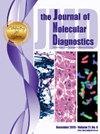A Comprehensive Guide to Achieving New York State Clinical Laboratory Evaluation Program Approval for Next-Generation Sequencing Assays
IF 3.4
3区 医学
Q1 PATHOLOGY
引用次数: 0
Abstract
The US Food and Drug Administration's recent move to regulate laboratory-developed tests as in vitro diagnostics has raised significant interest and concerns regarding its implementation. The New York State Department of Health's Clinical Laboratory Evaluation Program (CLEP) provides a useful framework for understanding laboratory-developed test oversight, particularly through its guidelines for next-generation sequencing assays. These CLEP requirements for analytical validation are widely recognized as a national standard, yet there is limited peer-reviewed literature detailing the studies needed for CLEP approval. This study presents the validation of the Rapid Pan-Heme (RPPH) assay, a genomic profiling tool for hematopoietic neoplasms, developed in compliance with CLEP standards. The RPPH assay features a comprehensive next-generation sequencing panel targeting >400 genes with clinically relevant variants, including single-nucleotide variants, insertions and deletions, and fusions critical for classifying hematopoietic malignancies. CLEP approval mandates detailed documentation, quality control metrics, validation studies (accuracy, precision, and reproducibility), and compliant clinical reporting. It is demonstrated that RPPH achieves CLEP's stringent analytical sensitivity and reproducibility criteria. Variants were orthogonally validated, and proper controls were implemented. Additionally, it is outlined how RPPH's clinical reports align with CLEP requirements. Overall, this study establishes RPPH as a robust molecular diagnostic tool and provides actionable insights for researchers navigating regulatory compliance and assay validation in clinical settings.
实现纽约州临床实验室评估计划批准下一代测序测定的综合指南。
FDA最近将实验室开发的测试(LDTs)作为体外诊断(IVDs)进行监管的举措引起了人们对其实施的极大兴趣和关注。纽约州卫生部的临床实验室评估计划(CLEP)为理解LDT监督提供了一个有用的框架,特别是通过其下一代测序(NGS)测定的指导方针。这些分析验证的CLEP要求被广泛认为是国家标准,然而,详细介绍CLEP批准所需研究的同行评议文献有限。本研究验证了快速泛血红素(RPPH)测定,这是一种符合CLEP标准的造血肿瘤基因组分析工具。RPPH检测具有全面的NGS面板,针对超过400个具有临床相关变异的基因,包括单核苷酸变异,插入和缺失,以及对分类造血恶性肿瘤至关重要的融合。CLEP批准要求详细的文档、质量控制指标、验证研究(准确性、精密度、可重复性)和合规的临床报告。我们证明RPPH达到了CLEP严格的分析灵敏度和重复性标准。对变量进行正交验证,并实施适当的控制。此外,我们概述了RPPH的临床报告如何与CLEP要求保持一致。总的来说,本研究确立了RPPH作为一种强大的分子诊断工具,并为研究人员在临床环境中导航法规遵从性和检测验证提供了可操作的见解。
本文章由计算机程序翻译,如有差异,请以英文原文为准。
求助全文
约1分钟内获得全文
求助全文
来源期刊
CiteScore
8.10
自引率
2.40%
发文量
143
审稿时长
43 days
期刊介绍:
The Journal of Molecular Diagnostics, the official publication of the Association for Molecular Pathology (AMP), co-owned by the American Society for Investigative Pathology (ASIP), seeks to publish high quality original papers on scientific advances in the translation and validation of molecular discoveries in medicine into the clinical diagnostic setting, and the description and application of technological advances in the field of molecular diagnostic medicine. The editors welcome for review articles that contain: novel discoveries or clinicopathologic correlations including studies in oncology, infectious diseases, inherited diseases, predisposition to disease, clinical informatics, or the description of polymorphisms linked to disease states or normal variations; the application of diagnostic methodologies in clinical trials; or the development of new or improved molecular methods which may be applied to diagnosis or monitoring of disease or disease predisposition.

 求助内容:
求助内容: 应助结果提醒方式:
应助结果提醒方式:


